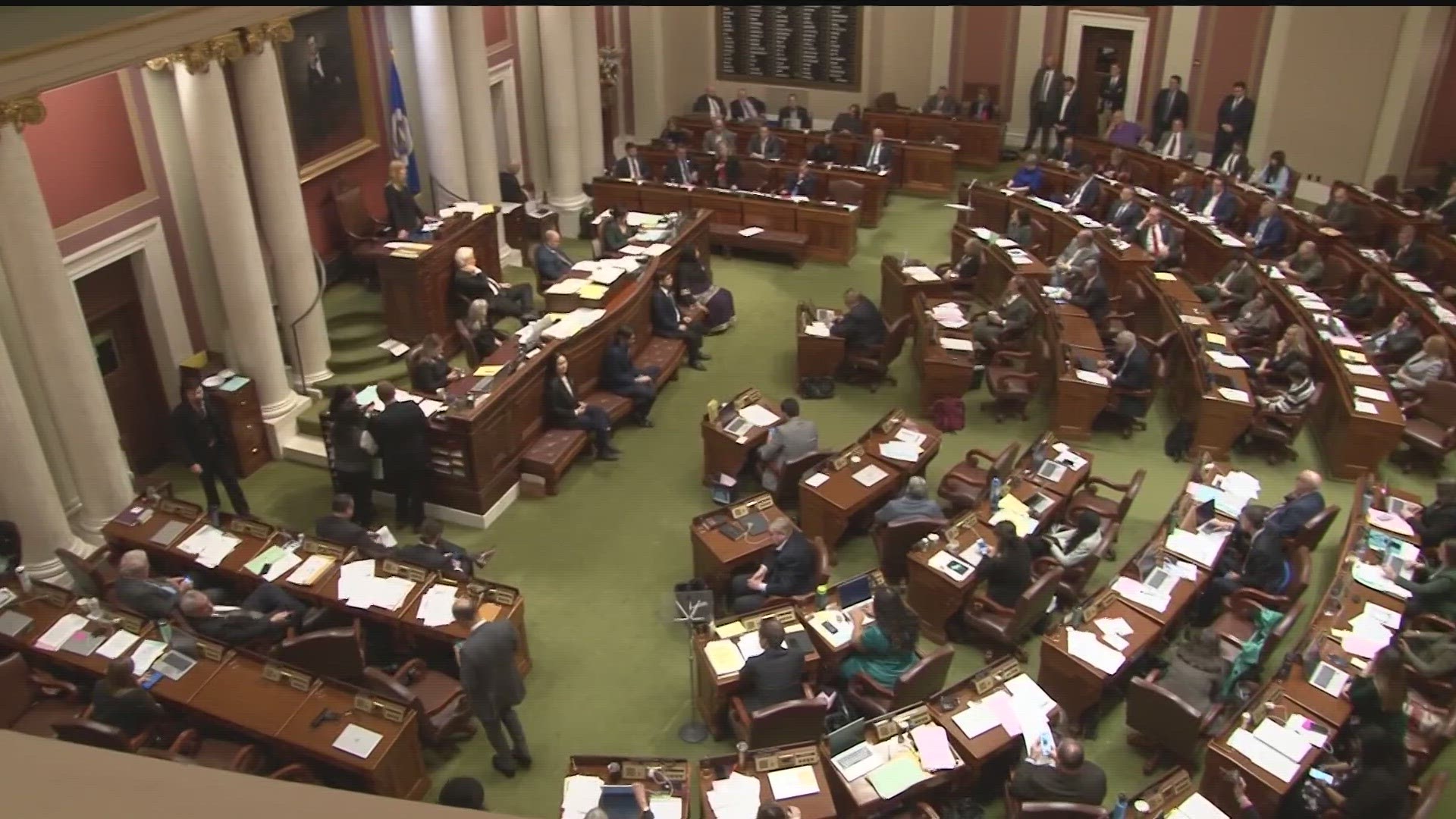ST PAUL, Minn. — For the first time ever, Minnesota House DFL leaders have included rebate checks in their main tax policy blueprint, after being cool to the idea when Governor Walz pitched it in the past.
It's part of a plan to deliver $3 billion in targeted tax relief, aimed at helping those who are struggling the most making ends meet.
"We're really focused on getting money into the pockets of the Minnesotans who need it the most, and I think the way the rebate is designed is aligned with that goal," Rep. Aisha Gomez, the Minneapolis Democrat who chairs the House Tax Committee, told reporters Monday.
If the bill were to become law, the state would send $275 rebate checks to each taxpayer, plus $275 for each dependent up to three. The checks would be limited to joint tax filers who earn $150,000 or less and single filers who make $75,000 or less.
"So, for a family of four this would be $1,200," Rep. Gomez explained. "That's real money at the income level it's targeted at, and more than 2.5 million tax return filers would receive the rebate."
The package also includes a new Child & Working Family Tax Credit of up to $1,175 per child. It expands the K-12 Education Child Credit to $1,500 per child.
Social Security benefits
The House tax plan would also expand the number of seniors exempted from paying state income taxes on their Social Security benefits. Joint filers earning $100,000 or less and single filers who earn $78,000 or less would be totally exempt from state income taxes on those federal government checks.
Currently roughly 52% of Social Security recipients in Minnesota are exempt from state taxes. The House bill, were it to become law, would raise that share to 76% of recipients.
"We made the choice that we're not just going to help the highest income seniors. We're actually going to help those who are struggling with their bills, so that was the tradeoff," Gomez explained.
She said it would cost $1.3 billion in lost tax revenue over the next two-year budget cycle to completely exempt Social Security earnings, while the House DFL plan would cost $500 million. Gomez says that extra $800 million can be spent on other parts of the tax plan seniors would benefit from, including higher property tax refunds for homeowners and renters.
She pointed out the tax bill also includes a boost to local government aid, and revenue sharing with counties. That state aid will reduce the need for local communities to raise property taxes, which will also benefit older Minnesotans.
Watch more Minnesota politics:
Watch the latest political coverage from the Land of 10,000 Lakes in our YouTube playlist:

